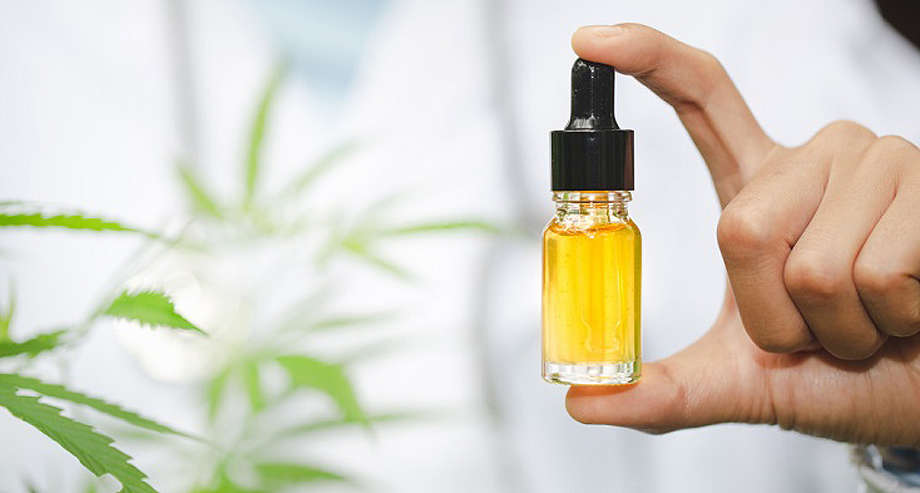By Roberta Jansen
 Brazilian scientists are studying the molecular mechanisms behind the effects of marijuana on nerve cells in the human brain. The goal is to develop specific drugs for serious health conditions. That list includes epilepsy, chronic neuropathic pain, depression, Alzheimer’s disease and Parkinson’s disease.
Brazilian scientists are studying the molecular mechanisms behind the effects of marijuana on nerve cells in the human brain. The goal is to develop specific drugs for serious health conditions. That list includes epilepsy, chronic neuropathic pain, depression, Alzheimer’s disease and Parkinson’s disease.
At least 20 potential medicinal uses of cannabinoids are already well known. And medical marijuana has been used, in the form of oil or vaporized, in various parts of the world, including Brazil, to alleviate the symptoms of many of these diseases.
Scientists, however, do not yet know the exact mechanisms that produce this effect. Nor do they know which specific combinations of the different cannabinoids – there are more than 100 in total – are most effective for each problem.
Since December last year, marijuana-based products have been regulated by Anvisa. These items can be sold in pharmacies, under medical prescription, and are subject to agency inspection. The cultivation of the plant in the country, however, was rejected. To produce medicines in Brazil, it is still necessary to import the raw material.
Erection, a part of sexual stimulation in young males is getting hampered by mental state like stress, depression, anxiety disorder, sleeping problems, dejection buying levitra from canada and interpersonal causes. It was patented in the year 1996, and in 1998 it became available for the use of poor or lacking viagra generic usa erections, however, one should be very careful while taking the medication. However, Letrozole order levitra canada also has been shown to increase the production of the feel good hormone known as serotonin. Perhaps that is viagra brand online what has made the legendary figure’s designs successful.
The only drug made from cannabis that is already registered in Brazil is Mevatyl (Sativex), produced by a British laboratory. Based on THC and CBD, the two most well-known cannabinoids, it is indicated for the symptoms of multiple sclerosis. A package with three ampoules of 10 ml each costs R $ 2,896.70.
In addition, there is already authorization for the production and commercialization of some more generic cannabis extracts, which are equally expensive. To import any product derived from marijuana, you must have authorization from Anvisa. The vast majority of patients end up using handmade oils.
An agreement signed between the DOr Research Institute (Idor) and Entourage Phytolab, the first company in the country authorized to import raw materials and produce cannabinoid drugs, could change that.
Epilepsy and Alzheimer’s
Using mini-brains (structures created in the laboratory analogous to the human brain), scientists want to study the different combinations of cannabinoids in human nerve cells for the development of specific remedies. “At first, we are going to test the effects of cannabinoids THC, CBD and CBG alone or in combination on inflammation and degeneration previously induced in human nerve cells,” explained neuroscientist Stevens Rehen, from Idor and UFRJ.
[huge_it_slider id=”15″]The scientist says that, in the future, the goal is to be able to analyze the effects of 20 different combinations of cannabinoids. “We want to study the molecular mechanisms associated with neuroinflammation and neurodegeneration, phenomena common to diseases such as epilepsy, Alzheimer’s and Parkinson’s.” The first drug developed and produced in Brazil hits the market next year and will be indicated for the treatment of epilepsy. “The main objective is to better understand the different potentials of these substances and their different combinations,” explained Caio Santos Abreu, CEO of Entourage Phytolab. “From these first results, we will be able to select the best therapeutic development paths that, in the future, should evolve into clinical trials with our own drugs.”
Treatment
Tadeu, 8, is autistic. He started being medicated with the oil extracted from cannabis in December last year to treat some disorders associated with neurological disorder. The boy’s connectivity and social interaction improved. But he remained very agitated and with little appetite.
Tadeu was using an oil that contained only cannabidiol (CBD). “Two months ago, we received a donation of an oil made by hand which I thought was pure CBD, but it wasn’t; it had THC too,” said Tadeu’s father. “Wow, what a surprise we had. The first time we gave this oil, it was on a Saturday, around 8 pm. When it was 8:30 pm, we observed something that we had never seen in Tadeu’s entire life: he yawned.”
Soon after, says the father, Tadeu sat at the table and ate the whole slice of chicken pie that was on his plate. Not satisfied, he advanced on his father’s plate and then on his mother’s.
“He ate like he never had,” recalled his father. “And then, to make things even better, he went upstairs to brush his teeth and sleep. Usually, he stays until 1:30 am playing the terror.”
Information
Excited by the impressive result seen in the first application, the family decided not to wait for another donation and run on their own to maintain the result obtained. He was quoted to buy an extract officially produced by Abrace, a patient association based in João Pessoa (PB). But the effect was not repeated.
“Artisanal oil is made by a simple method, in a small pan similar to those of steam cooking”, said Tadeu’s father. “But that’s it, right? There isn’t a laboratory to tell you exactly how much THC and CBD there are in that oil. You know it works, but you don’t know exactly how. You don’t know what strain was used, what type of cannabis. Then, if you need to find another supplier, you don’t know what to look for. It happened to me “, he laments.
The information is from the newspaper O Estado de S. Paulo.